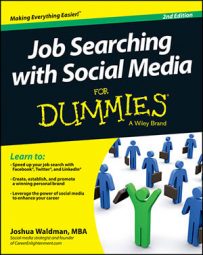Whether you’re applying to a particular job opening or just reaching out to hiring managers to explore possibilities, the results of your efforts won’t always go your way. If you don’t get the job or if hiring managers don’t want to talk to you, it’s probably not your fault.
Don’t take it to heart. Instead, look at what you did well and what you can improve on. Then the next time you make a move into a company, you’ll have an even better strategy.
If you’ve had personal contact with the hiring manager, he may personally let you know that you weren’t chosen. If not, he may just let HR send an impersonal form letter. In that case, you need to ask for feedback so you can learn from your mistakes.
When asking for feedback, query the hiring manager, not HR. The decision maker chose someone else for a reason, and that reason may be valuable information to help you do better next time.
Make sure you follow a rejection letter with some of the questions in the following list (don’t ask all of them; just pick three):
Was there something in particular about my qualifications that lead you to this decision?
Did you have any reservations about hiring me that I can know about?
Is there a particular skill or certification that, if I had it, would have helped me get the position?
Could I have improved my communication with you in any way?
What could I have done better to influence your decision in my favor?
Please describe the person who did get the job. What made that person different/better than me?
Would you offer me any advice as I move ahead with my job search?
It’s a good idea to use e-mail to ask these questions rather than LinkedIn. In most cases, you’re alerted of the rejection via e-mail, and all you have to do is reply. If you don’t have an e-mail address or an e-mail to reply to, then a LinkedIn message is the next best option.
You may use a subject line like, “Quick follow-up on the XYZ position.” Just be sure you don’t come across as whining or nagging. Not all hiring managers are willing to answer these questions, but it’s worth a try.
Preface your reply with a statement like this, “As a professional, I’m always looking to improve myself. Would you be so kind as to answer the following questions for me? Please be as direct as you can.” Giving them permission to be direct is important. Fluffy answers won’t help you. Never get defensive if a hiring manager gives you hard feedback. Just reply with a simple “Thank you.”

